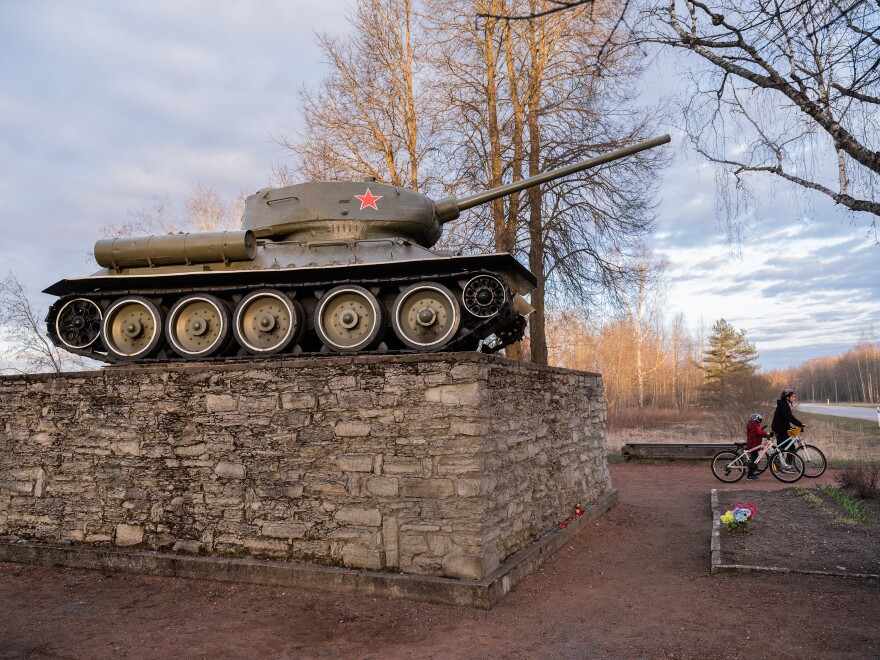NARVA, Estonia — At a town hall in an Estonian city on the border with Russia last month, the challenge of fighting Russian disinformation was on full display.
Yana Toom, an Estonian member of the European Parliament, joined journalist Anton Aleksejev and academic Aleksandr Astrov at Narva College to talk about the war in Ukraine. Toom, whose Centre Party relies on the Estonian Russian-speaking community's support, had recently made a public pivot — to condemn Russia's war in Ukraine. She called the move a potential "political suicide" in an interview with NPR.
But it was the audience, made up of residents of Narva, a city whose population is over 95 percent Russian-speaking, that made the liveliest contributions — for and against the West's approach to the war.


A group of older women in the back of the audience would regularly interject every time a comment was made supporting Ukraine or condemning Russian President Vladimir Putin. They'd throw out insults about Ukrainian President Volodymr Zelenskyy, a former actor, or suggest that if the U.S. ordered Estonia to attack Russia, their country would be forced into war. Meanwhile, other audience members, including a few younger women, became emotional when asking whether it was possible to convince their friends and family members to think of the massacres in cities like Bucha and Mariupol, and change their minds about supporting the Russian regime.
Estonia is one of several countries formerly occupied by the Soviet Union where culturally Russian people live and work, particularly in the border regions. While many have lived in Estonia their entire lives, the influence of Russian TV, Russian politics and Russian culture remains strong.
That influence has led to difficult conversations, particularly since Feb. 24, when Russia invaded Ukraine.
Putin has partly justified an unprovoked war in Ukraine by proclaiming his desire to reunite the so-called "Russian world," essentially the former Soviet Union, and defend ethnic Russian minorities in neighboring countries like Estonia from discrimination. While those claims are largely fabricated, there are real challenges in uniting the Russian and Estonian cultures, exacerbated by recent geopolitical tensions.
"I don't see any possibility that I can exclude, for instance, some of my voters who supported me in the elections, even if they are supporting Putin today. For a part of that, they do have problems in Estonia, which has to be solved," said Toom after the event wrapped up. "I also believe that propaganda does not work in a society which is united."
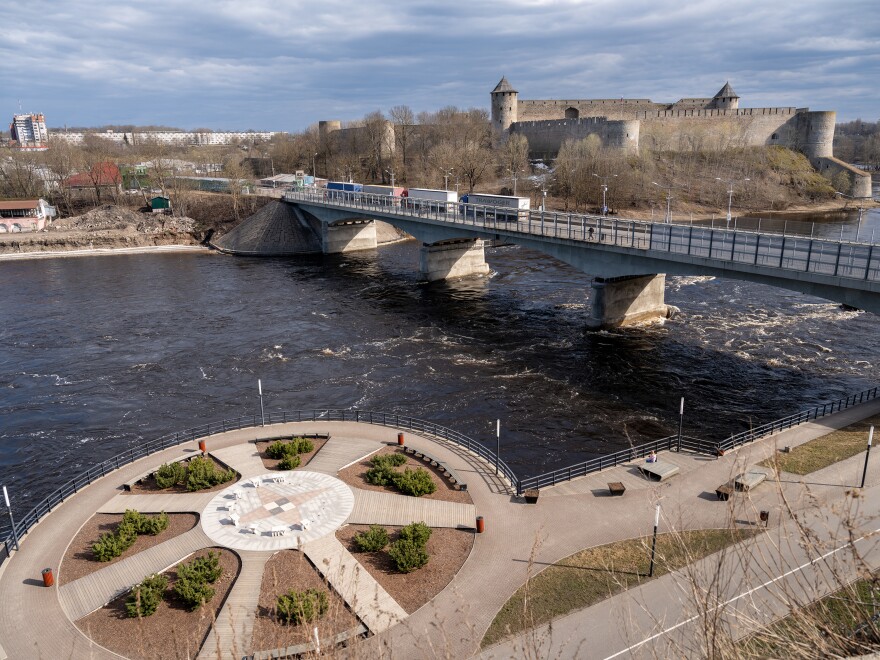

The challenges
Toom is one of many Estonians who feel a responsibility to respond to the war in Ukraine and to the Russian disinformation surrounding it, a reality many in the region have faced for decades, since Estonia became independent in 1991.
For Toom, that includes confronting what she sees are real divisions in society.
After the end of World War II, when the Soviets defeated the Germans on the Eastern Front, a large number of Soviet citizens were sent to live in Estonia, while many native Estonians were exiled or fled. Over the years, many of those immigrants either kept their Russian citizenship, applied for Estonian citizenship, or chose to not apply for either, becoming "gray" or "alien" passport holders. In Estonia, that means these residents have Estonian passports, but not citizenship, limiting their ability to vote in Estonian elections, for example.
Since 2016, the Estonian government has allowed the children of "stateless" Estonian residents to automatically qualify for citizenship, and has loosened the Estonian language requirements to apply for citizenship. However, in places like Narva, there is almost no need to learn Estonian, further creating divisions.

Toom has suggested that the Estonian government grant citizenship automatically to any stateless Estonian resident who requests it, without any testing requirements — a proposition that has met resistance from the Estonian government in the past, particularly as the percentage of stateless Estonian residents dwindles.
As young Russian-speakers automatically qualify for citizenship, are offered Estonian language education in schools and receive cultural and economic benefits their elder relatives didn't have, the divide has become increasingly generational.
Young Russian-speaking Estonians interviewed by NPR said that their older relatives, particularly those who grew up in the Soviet Union and have only been watching Russian State TV, have a hard time breaking outside of a narrow information bubble.
Mark Vorobjov, a 28-year-old living in Estonia's capital city of Tallinn, said he grew up speaking both Russian and Estonian, and has never felt discriminated against or prevented from speaking Russian. He works in Tallinn's thriving tech industry doing video-game design, and he says his circles of friends, particularly in Tallinn, are much more integrated into Estonian society than older generations.
"It's a problem for people who are older ... because they grew up in a different country. The transition period was, of course, harder," he said.
Even so, in the broader community of Russian-speaking Estonians, he sad he's seen "three groups" form: those who support Ukraine and the West, a silent and neutral group who refuses to comment either way, and, finally, those who support Russia "unfortunately still to this day," he said.
"I've had some heated discussions in the group chats," he said.
For those in the last group, Vorobjov says, they're the most focused on hyper-local issues, and least aware of global news and what's actually happening in Ukraine, perhaps creating urgency for groups who are focused on getting real news and information into Russia and to Russian-speakers in Estonia and beyond.
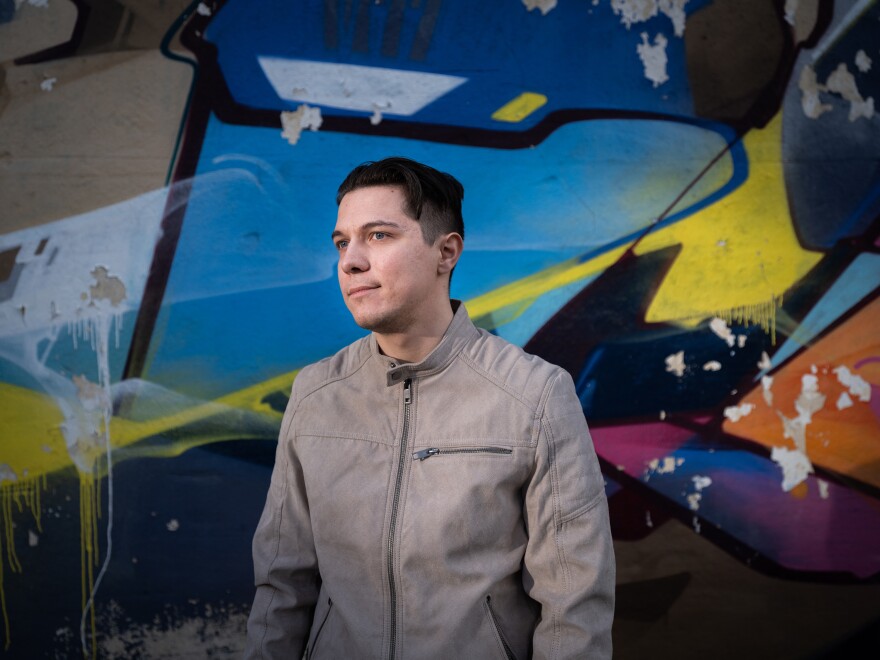
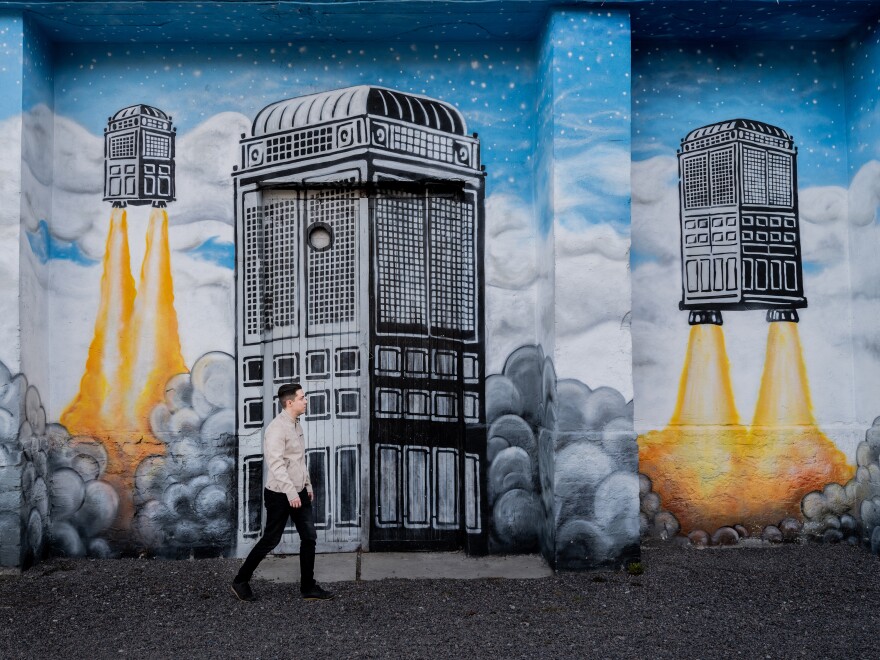
The solutions
Estonia is one of the biggest financial contributors to Ukraine's defense, both militarily and through private sector donations. Estonia's robust support for Ukraine, and stark condemnations of Russia, are part of what create animosity with Russian speakers, says Yana Toom, the Estonian politician.
But there is also a lot of work being done inside Estonia, particularly in recent years, to try to integrate cultural Russian minorities from Tallinn to Narva into Estonian society, despite bitterness and frustration on both sides —Russian populations who feel villainized, and Estonians who remember Russian occupation and oppression. Vorobjov argued that while Russian TV and Russian speakers spend a great deal of time pointing out divisions in Estonia and other countries in the region, there's very little Russian officials are doing to try to actually fix the problems.
The Estonian government has taken immediate steps since the war began — including banning four Russian TV stations and one Belarussian outlet within Estonia just days after the invasion.
But there are also longer-term strategies. Since 2000, the Estonian government has created an action plan to integrate non-citizens and ethnic minorities, focused primarily on social efforts and education. In recent months, Estonia launched its own Russian-language TV station, for example, and one public radio station broadcasts in Russian. There's a Russian Drama Theater and Russian Cultural Center in Tallinn, and a partnership between major music festivals in Tallinn and Narva. Vorobjov said there are Russian dance clubs, and more organic efforts by Russian speakers to celebrate their heritage while participating in Estonian society.
Additionally, there's also a large volunteer force of Estonians, the Estonian Defence League, ready to defend Estonia were the war to move toward the Baltics. That organization includes a diverse group, from native Russian speakers to the children of Estonian exiles who have since moved back, including Adam Rang, who is focused on English-language counter propaganda efforts on social media during the war.
Rang has a background in marketing and public affairs, previously in the Estonian government and now in his current business, selling and exporting Estonian sauna stoves. The Estonian sauna design, shaped like an igloo, has become a way to spread Estonian culture — to regular people and celebrities alike, including English former football star David Beckham, says Rang.

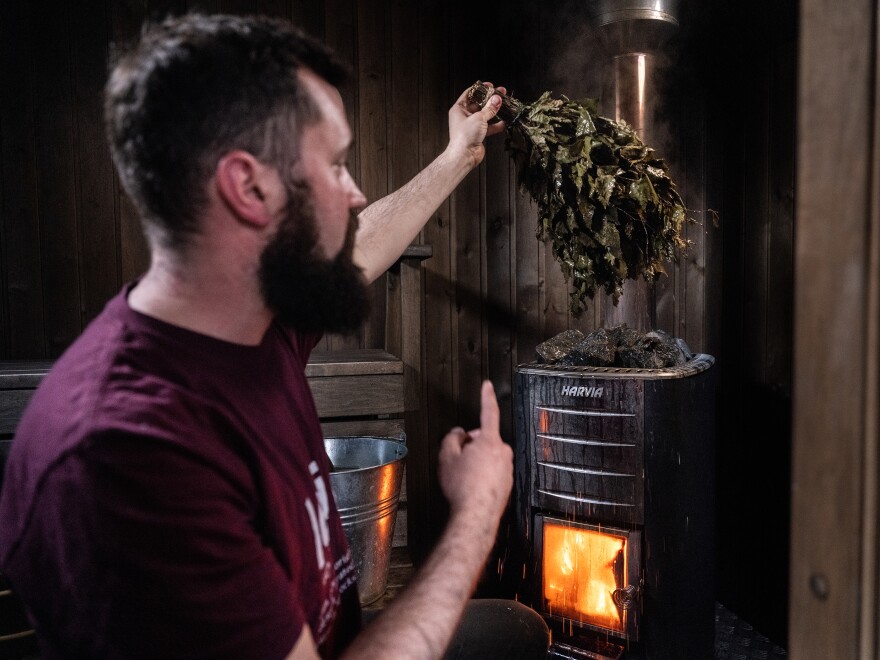
When he's not selling sauna stoves, he's on Twitter and other social media platforms, fact-checking popular propaganda lines that he says target "wedge issues" in society, in Estonia and beyond.
Some of the issues he's focused on are clarifying Estonia's membership in NATO — not as an "add-on," or less than full member, but a fully contributing part of the alliance, a membership that gives many Estonians confidence that Putin wouldn't dare invade the Baltics.
But the primary wedge issue he works on is the tensions between Russian and Estonian cultures within Estonia's borders. A tweet he posted fact-checking the notion that you can't speak Russian in Estonia attracted thousands of defiant responses from Russian-speaking Estonians, including Vorobjov, the 28-year-old video game designer.
Even so, Rang recognizes there are still challenges.
"It's not totally made up," he said, echoing Yana Toom, the Estonian member of Parliament.
Though he disagreed that it was because society was not united — in fact, he said those disagreements are to be celebrated. "Of course there's going to be tensions as differences of opinion form in a democratic society."
Since he was young and visiting Estonia, Rang says he's seen a dramatic improvement in Estonia's ability to include the Russian community in society.
Some of that is pure statistics; the number of people without citizenship is much lower, around 6 percent according to recent data. And even those who are technically stateless still get an Estonian passport and can travel freely between the EU and Russia, and would not be drafted into a military conflict if the need arose.
Rang also sees it in his own life — he has a lot more Russian-speaking friends, runs into a lot more Russian speakers in Estonia's start-ups, in political parties and government.
Ultimately, Rang says the subject of "Russians in Estonia" is far too simplified. From Russian exiles who fled to Estonia 300 years ago to Russian citizens living in Estonia and every category in between, it's becoming more challenging for propagandists to paint that population with a single brush, he says.
"Over the years, coming back to Estonia, more and more, especially now living here ... so much progress has been made," he said.
That includes directly standing up to Russian aggression. Russian speakers are among Rang's fellow volunteers in the Cyber Unit of Estonia's Defence League.
"We have Russian speakers and Estonian speakers and also a lot of kind of international people like me are kind of signing up at the moment," he said. "So I think all of that is really important, just demonstrating the cohesion of Estonian society, you know, same as we've seen in Ukraine."
"When people are put in these kinds of extreme situations, people find bravery and determination like never before."
Copyright 2023 NPR. To see more, visit https://www.npr.org.
